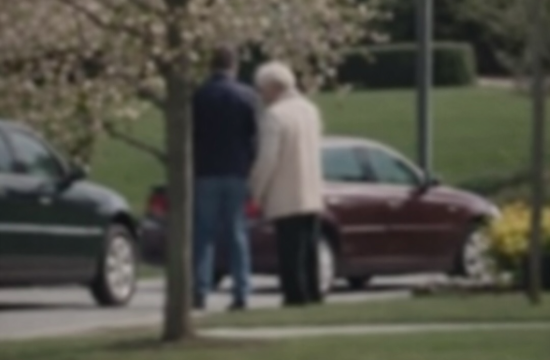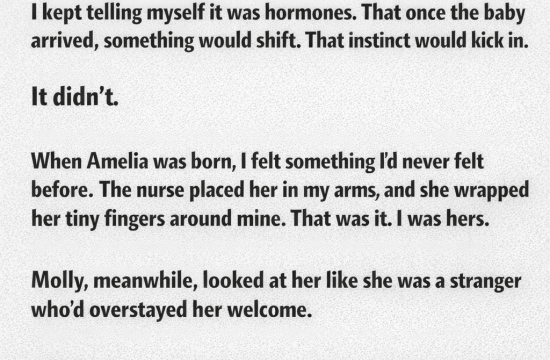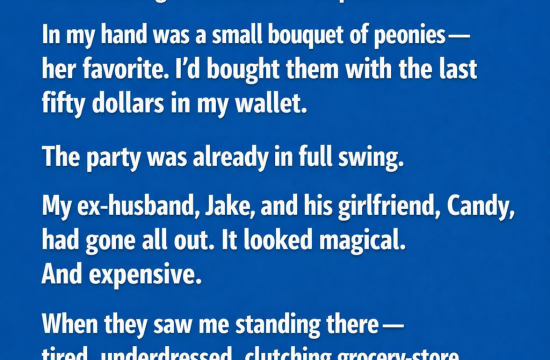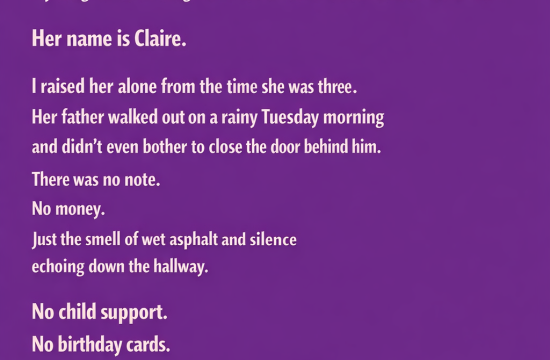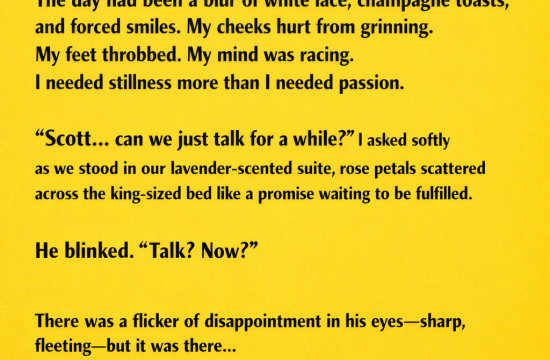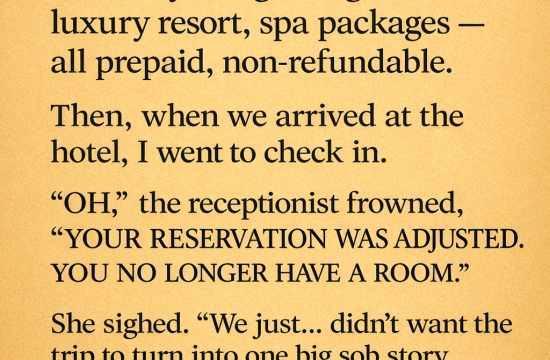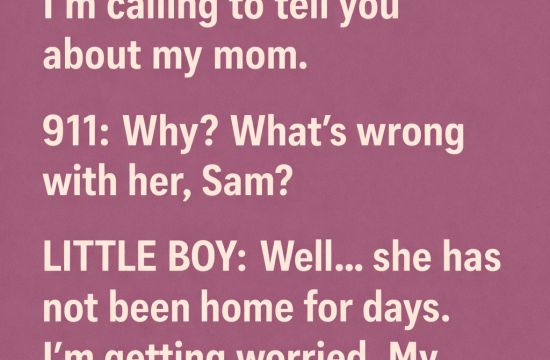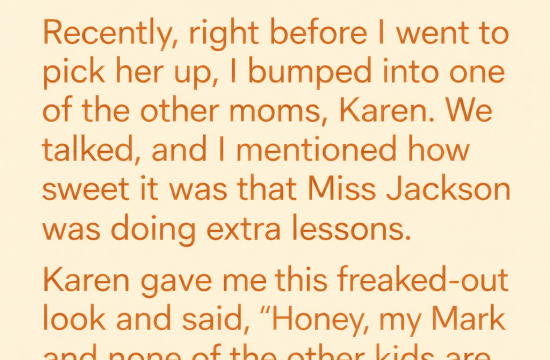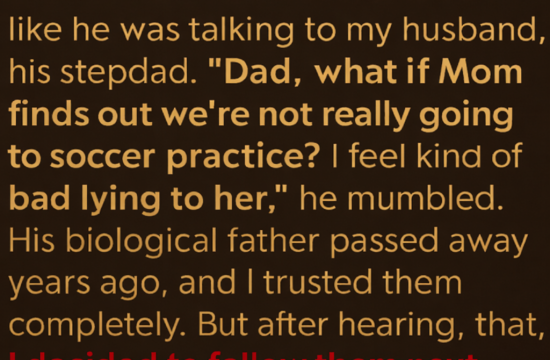Right after our father’s funeral, my sister kicked me out of his house without warning—my belongings already packed, waiting on the porch like garbage bags after a storm. Grieving and disoriented, I called our family lawyer. He chuckled softly—an unexpected sound in the middle of my unraveling—and said, “Your father knew this would happen. Come to my office tomorrow.”
I was still numb when I stepped out of the black limousine into the sweltering afternoon heat. The funeral crowd was thinning, drifting away in small clusters of whispered condolences. Linnea stood on the porch like a guard dog, arms crossed, her expression carved in stone. I told myself grief had hardened her. I wanted to believe that.
But when I climbed the steps, she thrust a duffel bag at me, clothes spilling out, my toothbrush sticking out like the final insult.
“You’re not staying here, Ellis,” she said coldly. “Dad left the house to me. You need to go.”
My fingers trembled as I took the bag. The world felt unreal, like I’d stepped into someone else’s nightmare. All I could see was Dad’s soft smile—the one he saved for when he thought I needed reassurance.
“Linnea, we haven’t even read the will,” I whispered, my voice cracking.
She scoffed. “Don’t embarrass yourself. Dad told me I’d get the house. Said you were too weak to handle anything.”
I didn’t argue. I didn’t trust myself not to shatter. I tossed my bag into a taxi and slid inside, swallowing back the ache rising in my throat. I didn’t look back.
That night in a cheap motel with peeling wallpaper and humming neon lights, I called Mr. Gresham again. My voice broke apart in messy sobs I tried to hold in. His calm, gravelly voice steadied me.
“Your father anticipated this, Ellis,” he said gently. “He left something for you. Come in tomorrow at nine.”
I barely slept—every hour spent wrestling with Linnea’s accusations and the silence Dad kept in his final weeks. Had he really chosen her? Had he really thought I was weak?
The next morning, Mr. Gresham’s office smelled like old paper, dust, and memories too heavy to carry. He sat behind his oak desk, somber yet kind, and handed me a yellowed envelope. My name was written in Dad’s shaky handwriting.
Inside was a letter.
Dad apologized for not saying everything in person. He admitted he’d seen the resentment in Linnea growing since Mom died. He worried she might lash out. He feared she’d try to cut me out—but wanted me to know he loved us both. Equally. Fiercely.
He had placed the house in a trust. We were to split it 50/50. Neither of us could sell without the other’s consent.
Tears blurred the ink. For the first time in days, my chest loosened enough to let hope in.
“I think it’s best if I talk to her first,” Mr. Gresham offered.
He put Linnea on speaker. She answered sharply, then fell silent as he read the will aloud.
“You’re lying!” she snapped. “Dad promised me! He said Ellis would ruin everything!”
“It’s all here, Linnea,” he replied gently. “You can come read it yourself.”
She hung up without another word.
I stared at the phone, feeling hollow. I didn’t know if I was angry, devastated, or simply tired. We had both lost the same man, but we were grieving different ghosts.
A week passed. I called her twice—she never picked up. I drifted through town like a shadow, living off diner meals and memories.
Then one afternoon, Mr. Gresham appeared at the motel. “She’s agreed to meet.”
We drove in silence to the house. When I stepped inside, Linnea was sitting on the couch, stiff, eyes red from crying.
“You can move back in,” she muttered. “I know I can’t stop you.”
I stood there, unsure, the pain still raw. I wanted to rage. I wanted to tell her she’d broken something inside me.
Instead, I sat down.
The quiet stretched until she finally spoke.
She confessed she’d always felt second-best. That she resented how much time Dad and I spent together after Mom died—how she was always gone, chasing promotions, chasing approval. She admitted she overheard Dad once, worrying aloud about me, and twisted it into proof that he loved me more.
Something in me cracked open too.
I told her how I’d always envied her—the success, the confidence, the way Dad lit up whenever she talked about her job. I always felt like the fragile one, the one he worried about, not the one he admired.
We were both walking wounds, misreading the same man from different angles.
That night we cooked dinner together. She burned the garlic bread; we laughed. It was awkward, but real. A small spark of our childhood bond flickered back to life.
Then, just as peace began to settle between us, came the twist.
A week later, Mr. Gresham called again—his voice heavier this time. He’d found a second letter in Dad’s safe deposit box.
Dad had taken out a reverse mortgage years ago to pay for medical bills we never knew about. The house—the thing we fought over like feral animals—wasn’t fully ours. It had to be sold in six months to settle the debt.
Linnea and I sat in silence on the living room floor. Then we cried. But this time, together.
Over the next few weeks, we sorted Dad’s belongings, sharing stories we thought only we remembered. The house, once a battlefield, slowly became a place of healing.
Eventually, we sold it ourselves. After clearing the debt, we used the remainder to buy a modest duplex—two units, side by side. Not perfect. But close enough.
Now every Sunday, Linnea comes over for dinner. We argue over recipes, tease each other, sometimes cry when a memory sneaks up on us. Our relationship isn’t flawless. It’s messy, tender, rebuilding itself one imperfect day at a time.
And I finally realized something:
The house wasn’t the inheritance.
The understanding was.


